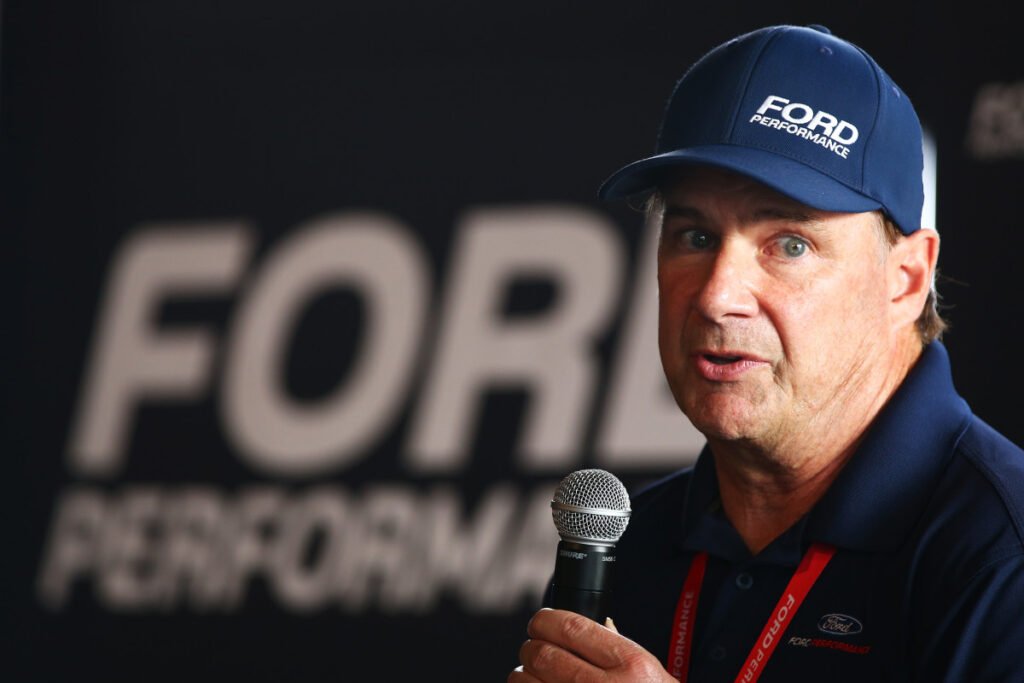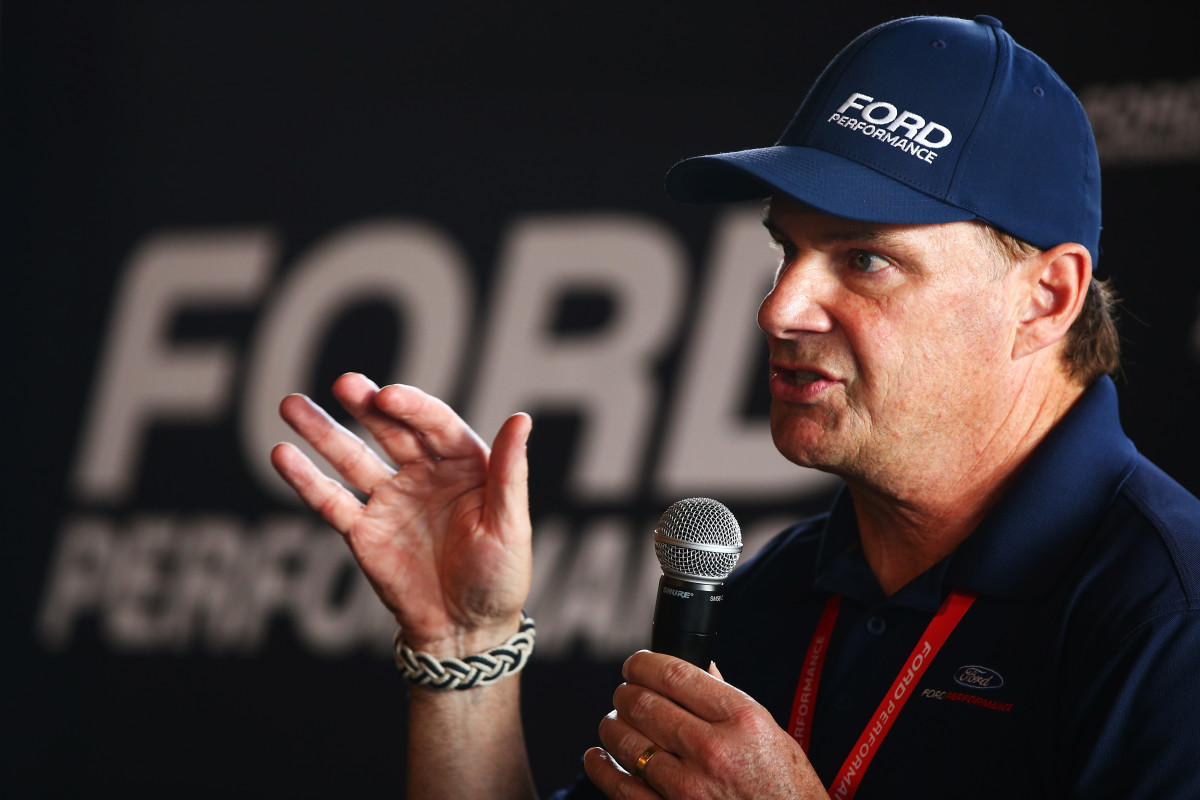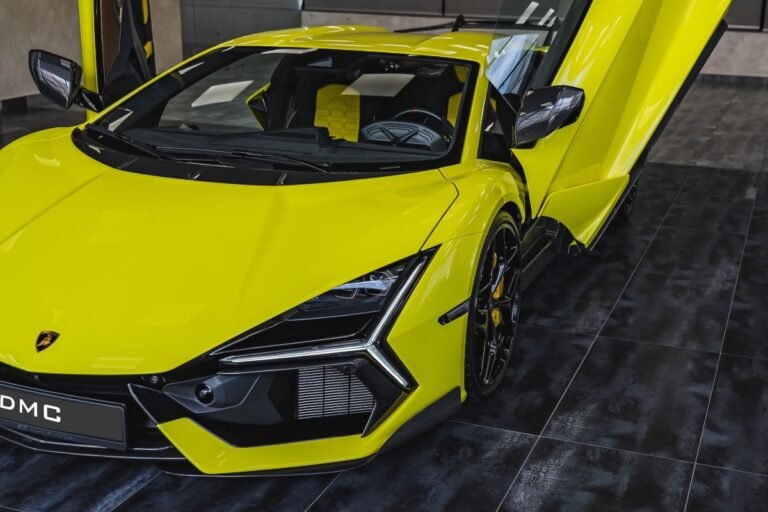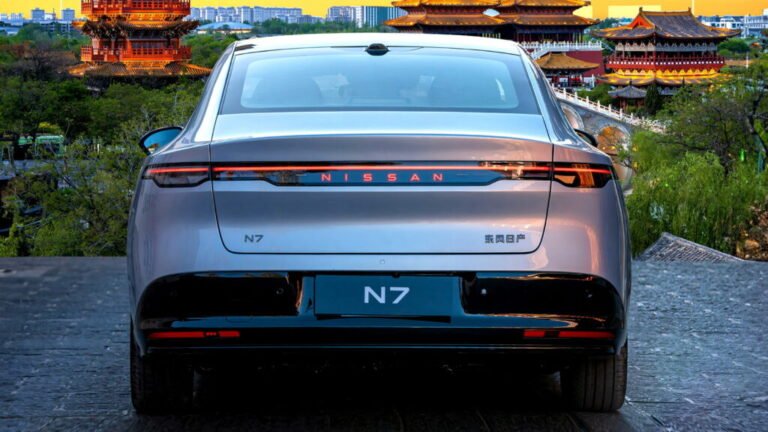
Ford’s CEO wants more talks on tariffs
At a June 27 appearance at the Aspen Ideas Festival moderated by author and biographer Walter Isaacson, Ford CEO Jim Farley defended that some limited, targeted import tariffs could help the Blue Oval and other Detroit automakers survive and create more industrial jobs. Still, Farley said there needs to be a balance between a “fair playing field” to promote U.S. manufacturing while keeping cars affordable, which unfortunately will require importing components from other countries like Mexico.
“What I like to say is, let’s create a fair playing field for the finished vehicle. For parts, let us import parts from around the world,” Farley said. “Let us keep Mexico stable, and other countries. That’s what we’re working with the administration on.”
Farley was previously critical of tariffs, but sees a silver lining
The Ford figurehead’s remarks at Aspen comes four months after he criticized President Trump’s tariff policies at the same time Ford announced its Q4 and FY 2024 financial results in February, where he noted that they would create “a lot of cost and a lot of chaos,” as duties on Mexican and Canadian imports “would blow a hole in the U.S. industry that we have never seen.”
However, he has slightly softened his position, noting that some protectionist measures could help promote American blue-collar industries, such as construction, manufacturing, agriculture, and skilled trades, to the next generation of skilled workforce instead of white-collar office work.
He noted that the American workforce needs “to go back to the basics to trade schools” and that “we need to have a society that doesn’t look down on people like that,” adding that its factory in Germany participates in an apprenticeship program where students are exposed to an industrial environment “starting in junior high school.”

Getty Images
“What happens if you [the United States] have to defend yourself?” Farley told Issacson and the crowd at Aspen. “What, is Google going to make the tanks? We’ve talked a lot about energy independence, but we need to start talking about industrial independence. People do not realize how dependent we are as a country on making things in other countries.”
Farley pointed to the rare earth mineral crisis as an example. Over the last three weeks, Ford temporarily idled factories in the U.S. due to a shortage of magnets containing rare earth minerals, which are used in many different components.
“We cannot get any high-powered magnets without China,” Farley said. “We shut down plants for the last three weeks because we cannot get high-powered magnets. We can’t make that stuff.”
Final thoughts
As someone who graduated from a vocational high school, I see an inherent value in what Farley is saying. That’s especially true as the topic of his conversation with the Steve Jobs and Elon Musk biographer turned to the Chinese EV market, where he mentioned that realizing the strength of the Chinese automotive industry was “the most humbling thing I have ever seen,” adding that “seventy percent of all EVs in the world, electric vehicles, are made in China.”
However, I don’t think that getting more people into the trades and into industrial environments is an end-all, be-all solution. As time evolves, technologies such as robotics and AI may have a larger role in industrial might; at least that is what Chinese companies like Xiaomi have been doing to scale up their car factories. Farley isn’t wrong for wanting to try at least; however, there is more than what meets the eye on a topic where there is no straight solution.

